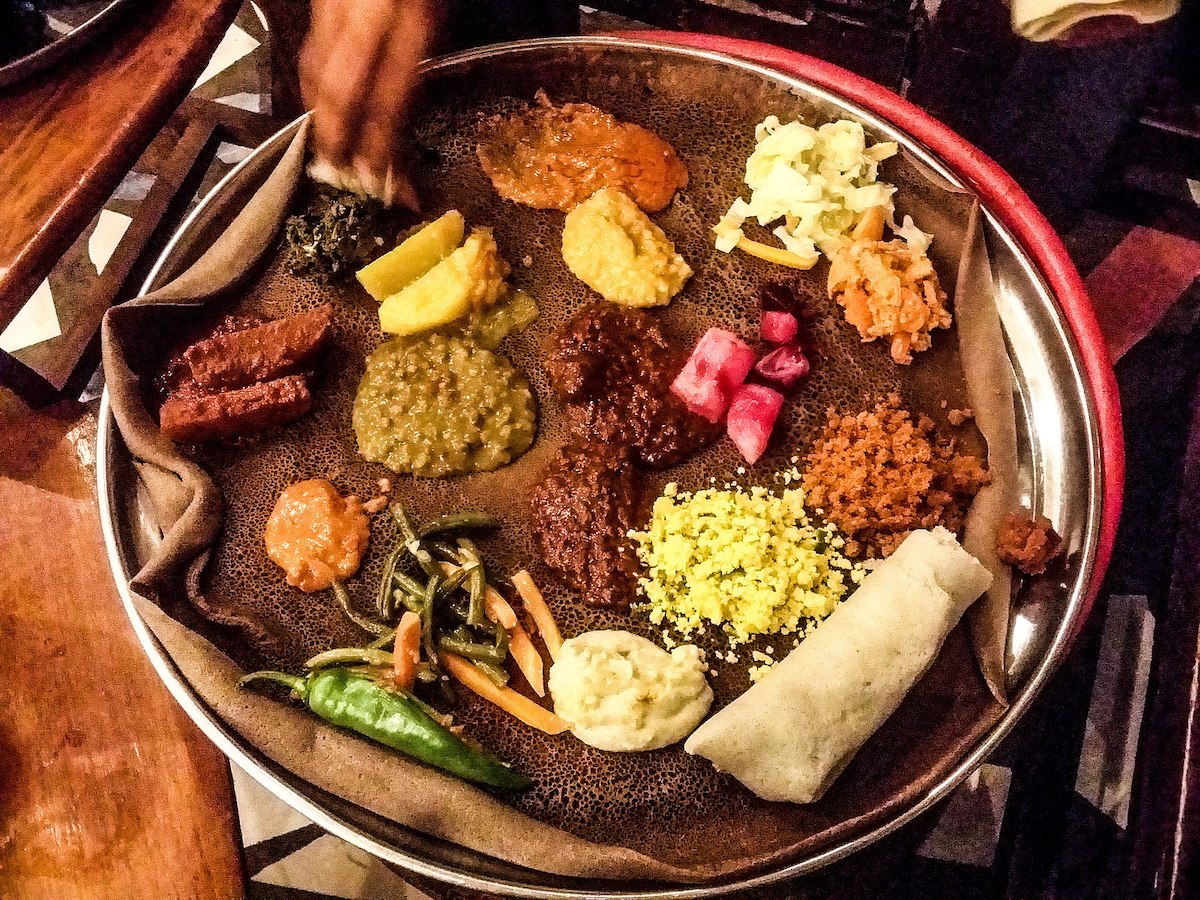Santa Barbara Chef Raises Awareness Through Ethiopian Cuisine
Saba Tewolde Will Honor and Support Her Homeland with a December 29 Dinner at SOhO

Chef Saba Tewolde’s favorite holiday is the Fourth of July. Born in a war, she escaped Ethiopia for a chance at American freedom. “When I came to America, I said, ‘Wow, I’m a woman with a country,’” she recalled, “‘a country where I can enjoy life without being worried.’”
Though relieved to be removed from the harrowing struggles of a war-torn country, Tewolde never forgets her homeland, and she uses her career as a chef to provide stewardship and support for her people.
Through her grandmother’s teachings, Tewolde learned to cook at a young age amid the struggles of day-to-day life. Even then, she held an altruistic ethic, sharing what money she made with neighbors. From these experiences, she pushed forward, immigrating to the U.S. in order to give back and paving a successful career in her humanitarian efforts and cuisine. Most recently, Tewolde served Ethiopian cuisine during the lunch hours at Embermill Restaurant, formerly on State Street, but has hosted delicious evenings of compassion and charity for years. “The way I raise money is by cooking and telling my story,” she explained.

Her next event is on December 29, 6-10 p.m., when Tewolde hosts a Feed the Children Fundraiser at SOhO Restaurant & Music Club to celebrate the recent peace deals between the Ethiopian government and the Tigray People’s Liberation Front. Though she intends to bring awareness to the many people who are still suffering in the wake of that conflict, Tewolde desires to entertain this moment of peace by sharing her authentic dishes with the public. As attendees dine on traditional Ethiopian cuisine, they’ll be entertained by musical guests, including Zoe Guess and others.
Below are but morsels of the menu that Tewolde intends to serve, all to honor her culture and story.
Berbere: “You have to have the chili powder that only comes from Ethiopia,” said Tewolde of this predominant spice. Chili peppers, cardamom, dried onion, garlic, cinnamon, basil, and a myriad of other common and lesser-known spices combine to make an aromatic, indelibly savory experience embodied in most Ethiopian dishes. “The chili powder from India, Mexico, and other places can never be berbere,” which boasts a flavor all its own and is the soul of the cuisine.
Injera: Bread and grain are the foundations of daily meals globally, and their consumption dates back thousands of years. Injera is fundamental to Ethiopian cuisine, acting as both bread and utensil. The ancient grain teff and water come together in a process of fermentation that takes multiple days before then the dough is thinned with water and cooked in a similar style to a crepe, ultimately yielding a thin, airy flatbread on which various stews and garnishes are spread. Traditionally, injera is consumed by hand, acting as the vessel for various dishes. The only thing different about Tewolde’s injera is that it is not cooked on the traditional clay plate; despite this, her injera is undeniably authentic (and gluten-free).
Doro Wat: First it is the scent of the berbere diffused through the steam of the stew that teases the sense of smell. Then the rich red color beckons further exploration. “The delicious sauce comes from cooking the chicken very slowly,” said Tewolde of this famous chicken stew. Tender pieces of chicken are companion to boiled eggs saturated in a complex mélange of spices: To eat doro wat cradled in injera is an experience both rich and comforting.
Messer Wot: As in the case of doro wat, the vibrant colors of the tender lentils in messer wot initiate the dining experience. Red lentils combine with berbere to create a spicy, stimulating sensation. Yellow lentils and Ethiopian turmeric, unique and exceptional like berbere, form a fragrant stew for those who do not prefer spice but enjoy dynamic flavors.
4·1·1
Saba Tewolde’s Feed the Children Fundraiser is at SOhO Restaurant & Music Club (1221 State St.) on December 29, 6-10 p.m.. Tickets are $35. Reservations recommended by texting (805) 452-3377.
Support the Santa Barbara Independent through a long-term or a single contribution.




You must be logged in to post a comment.